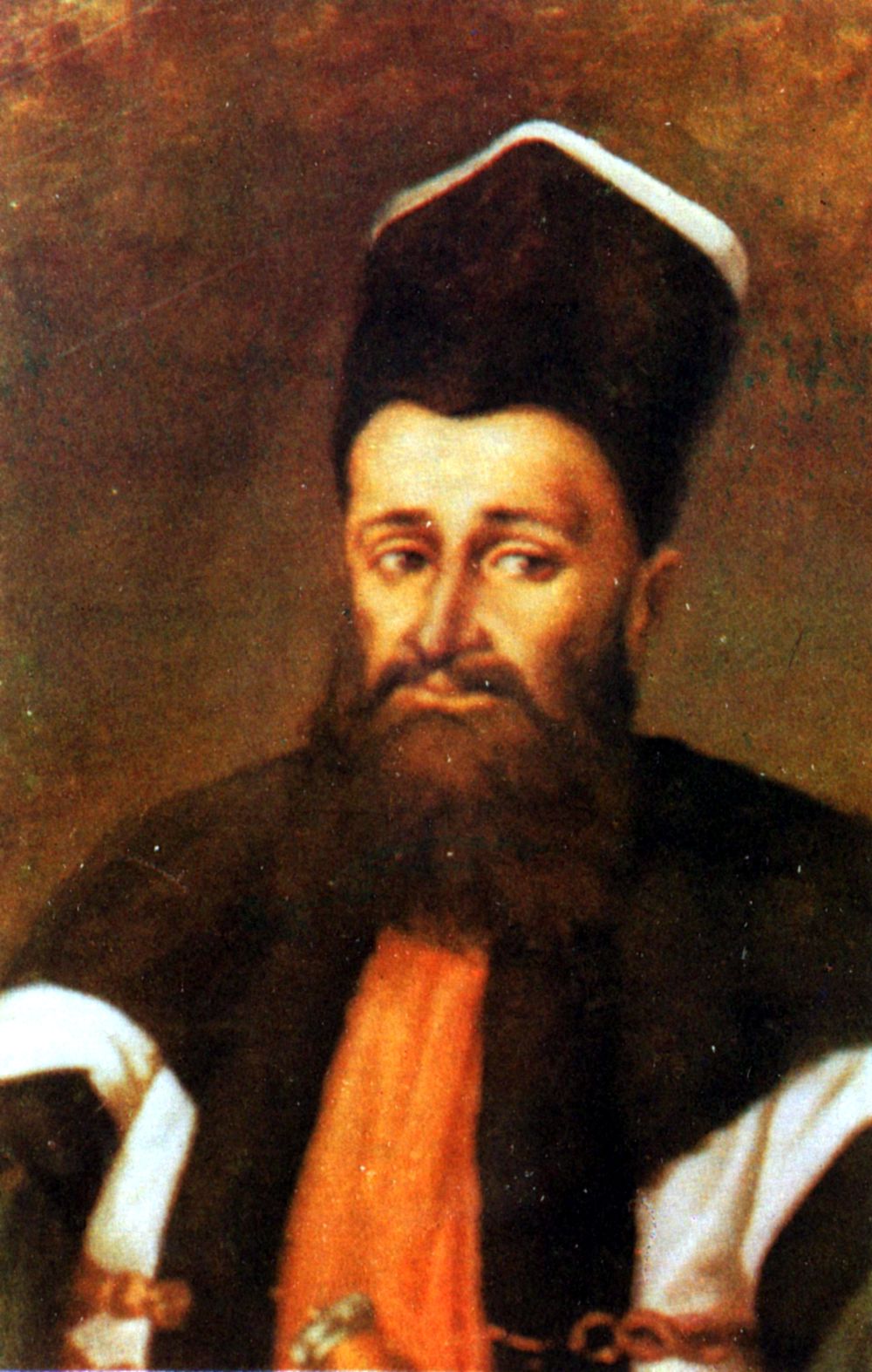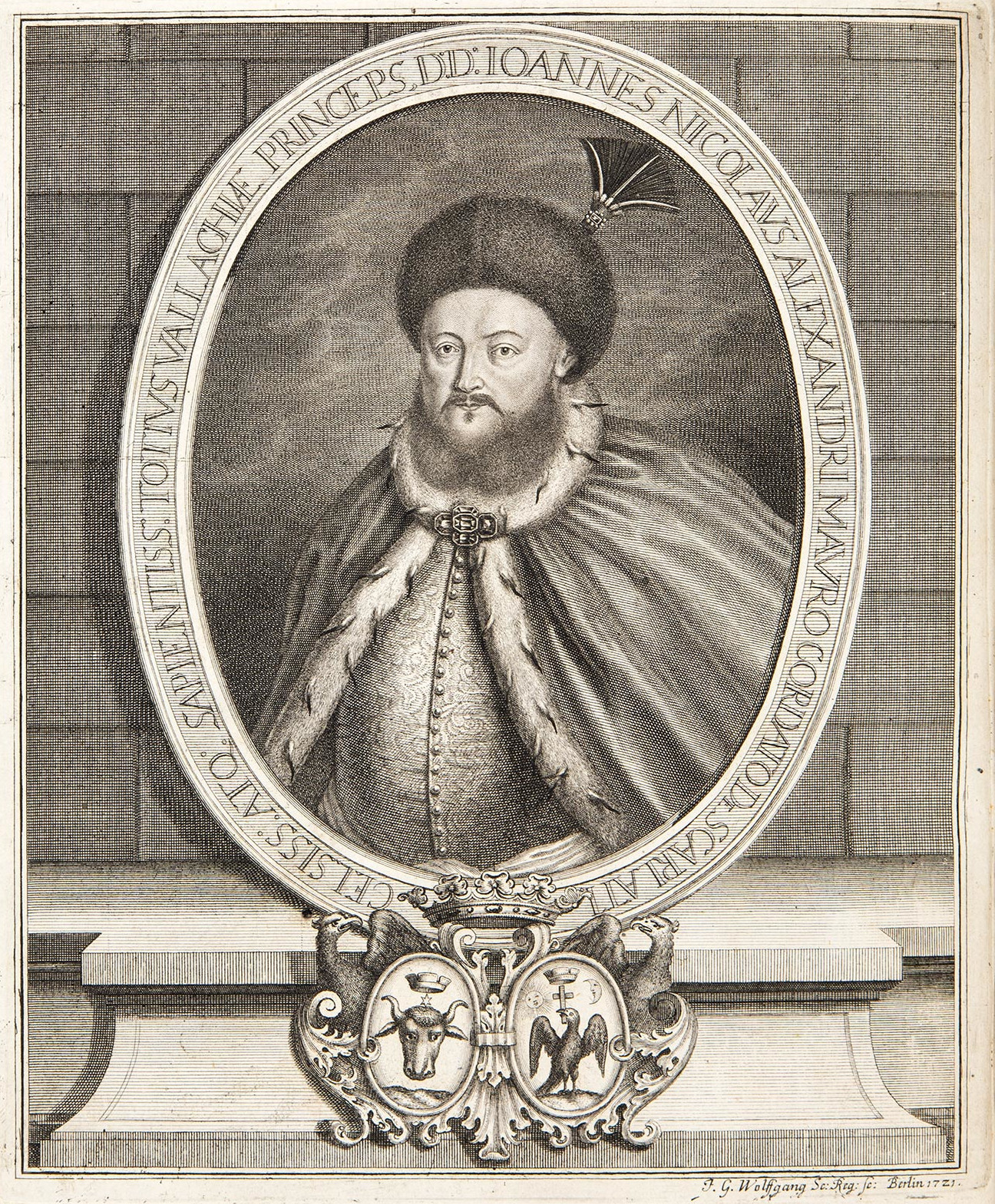|
Constantine Mourouzis
Prince Constantine Demetrius Mourouzis (, ; 1730 – 1 May 1787) was a Phanariote Prince of Moldavia, and member of the Mourousis family. A remarkable polyglot, he spoke five languages: Greek, Latin, French, Arabic and Turkish. In 1761, he became Grand '' Postelnic'' (foreign minister) in Moldavia, and soon after Dragoman of the Fleet (deputy minister) of the Ottoman Admiralty, and eventually Grand Dragoman. There are indications that he was politically involved in the dismissal and assassination of his predecessor, Grigore III Ghica, by the Porte.Brezianu, Andrei and Spânu, Vlad (eds.) (2007) "Moruzi. Constantin" ''Historical Dictionary of Moldova'' (2nd ed.) Scarecrow Press, Lanham, Maryland, USA, p. 250, Trusted by the Porte, he obtained the throne of Moldavia on October 12, 1770. Mourouzis spent much of his time in Iaşi, supervising the gathering of agricultural resources demanded by the Porte, but also fought extravagant luxury and surrounded himself with sch ... [...More Info...] [...Related Items...] OR: [Wikipedia] [Google] [Baidu] |
List Of Rulers Of Moldavia
This is a list of monarchs of Moldavia, from the first mention of the medieval polity east of the Carpathian Mountains, Carpathians and until its disestablishment in 1862, when Unification of Moldavia and Wallachia, it united with Wallachia, the other Danubian Principalities, Danubian Principality, to form the modern-day state of Romania. Notes Dynastic rule is hard to ascribe, given the loose traditional definition of the ruling family (on principle, princes were chosen from any branch, including a previous monarch's bastard sons – being defined as ''os de domn'' – "of Hospodar, domn marrow", or as having ''hereghie'' – "heredity" (from the Latin ''hereditas''); the institutions charged with the Elective monarchy, election, dominated by the boyars, had fluctuating degrees of influence). The system itself was challenged by usurpers, and became obsolete with the Phanariotes, Phanariote epoch, when monarchs were appointed by the Ottoman Empire, Ottoman Ottoman Dynasty, Sultans. ... [...More Info...] [...Related Items...] OR: [Wikipedia] [Google] [Baidu] |
Dragoman Of The Fleet
The Dragoman of the Fleet (; ) was a senior office in the Ottoman Empire, held by Phanariote Greeks during the 18th and early 19th centuries. As the chief deputy of the Kapudan Pasha, the Dragoman of the Fleet played a leading role in the administration of the various autonomous communities of the islands and coasts of the Aegean Sea that fell within the Eyalet of the Archipelago. History The office was established in 1701, in emulation of the Grand Dragoman of the Sublime Porte, which was also reserved for Phanariotes. Indeed, the post of Dragoman of the Fleet often served as a stepping-stone to that of Grand Dragoman. The dragoman (the term means 'interpreter') had to be proficient in the "three languages" () of Arabic, Persian, and Turkish that were commonly used in the empire, as well as a number of foreign languages (usually French and Italian), but his role went far beyond a mere interpreter. He was the official intermediary between the Kapudan Pasha, the commander-in-chief ... [...More Info...] [...Related Items...] OR: [Wikipedia] [Google] [Baidu] |
Monarchs Of Moldavia
A monarch () is a head of stateWebster's II New College Dictionary. "Monarch". Houghton Mifflin. Boston. 2001. p. 707. for life or until abdication, and therefore the head of state of a monarchy. A monarch may exercise the highest authority and power in the state, or others may wield that power on behalf of the monarch. Usually, a monarch either personally inherits the lawful right to exercise the state's sovereign rights (often referred to as ''the throne'' or ''the crown'') or is selected by an established process from a family or cohort eligible to provide the nation's monarch. Alternatively, an individual may proclaim oneself monarch, which may be backed and legitimated through acclamation, right of conquest or a combination of means. If a young child is crowned the monarch, then a regent is often appointed to govern until the monarch reaches the requisite adult age to rule. Monarchs' actual powers vary from one monarchy to another and in different eras; on one extreme, ... [...More Info...] [...Related Items...] OR: [Wikipedia] [Google] [Baidu] |
Dragomans Of The Porte
The Dragoman of the Sublime Porte (Ottoman Turkish language, Ottoman Turkish: ; ), Dragoman of the Imperial Council (), or simply Grand Dragoman (, ) or Chief Dragoman (), was the senior interpreter of the Imperial Council (Ottoman Empire), Ottoman government—frequently referred to as the "Sublime Porte"—and ''de facto'' deputy foreign minister. From the position's inception in 1661 until the outbreak of the Greek War of Independence in 1821, the office was occupied by Phanariotes, and was one of the main pillars of Phanariote power in the Ottoman Empire. History In the Ottoman Empire, the existence of official interpreters or dragomans is attested from the early 16th century. They were part of the staff of the (), who was responsible for foreign affairs within the Imperial Council (Ottoman Empire), Imperial Council. As few Ottoman Turks ever learned European languages, from early times the majority of these men were of Christian origin—in the main Austrians, Hungarians, Po ... [...More Info...] [...Related Items...] OR: [Wikipedia] [Google] [Baidu] |
1783 Deaths
Events January–March * January 20 – At Versailles, Great Britain signs preliminary peace treaties with the Kingdom of France and the Kingdom of Spain. * January 23 – The Confederation Congress ratifies two October 8, 1782, treaties signed by the United States with the United Netherlands. * February 3 – American Revolutionary War: Great Britain acknowledges the independence of the United States of America. At this time, the Spanish government does not grant diplomatic recognition. * February 4 – American Revolutionary War: Great Britain formally declares that it will cease hostilities with the United States. * February 5 – 1783 Calabrian earthquakes: The first of a sequence of five earthquakes strikes Calabria, Italy (February 5–7, March 1 & 28), leaving 50,000 dead. * February 7 – The Great Siege of Gibraltar is abandoned. * February 26 – The United States Continental Army's Corps of Engineers is disbanded. * March 5 ... [...More Info...] [...Related Items...] OR: [Wikipedia] [Google] [Baidu] |
List Of Moldavian Rulers
This is a list of monarchs of Moldavia, from the first mention of the medieval polity east of the Carpathian Mountains, Carpathians and until its disestablishment in 1862, when Unification of Moldavia and Wallachia, it united with Wallachia, the other Danubian Principalities, Danubian Principality, to form the modern-day state of Romania. Notes Dynastic rule is hard to ascribe, given the loose traditional definition of the ruling family (on principle, princes were chosen from any branch, including a previous monarch's bastard sons – being defined as ''os de domn'' – "of Hospodar, domn marrow", or as having ''hereghie'' – "heredity" (from the Latin ''hereditas''); the institutions charged with the Elective monarchy, election, dominated by the boyars, had fluctuating degrees of influence). The system itself was challenged by usurpers, and became obsolete with the Phanariotes, Phanariote epoch, when monarchs were appointed by the Ottoman Empire, Ottoman Ottoman Dynasty, Sultans. ... [...More Info...] [...Related Items...] OR: [Wikipedia] [Google] [Baidu] |
Nicolae Caradja
Nicholas Caradja (, ; 1737–1784) was a Phanariote Prince of Wallachia, who reigned between 5 January 1782 and 6 July 1783. Early life He was born as the son of Prince Konstantin Caradja (d. 1771) and his wife, Zefira Soutzos (d. 1791). Biography Prior to his reign, he was the Grand Dragoman of the Ottoman Empire in Constantinople (1777–1782). Reign Under his reign, police provisions taken concerned public hygiene such as chimney sweeping and the control of coffeehouses, inns, and ways. Unauthorized carrying of uniforms and weapons was prohibited, in order to avoid mutiny by those opposed to his taxation policy. Passports were introduced during his reign. Both to control the entry of foreigners and the exit of the discontented. Marriage and issue He was married to Tarisa Michalopoulos and had: * Eufrosona Caradja; married Prince Dimitrius Ghica * Zamfira Caradja; married Prince Alexander Mavrocordato * Smaragda Caradja; married Prince Nicholas Mavrocordato (1744- ... [...More Info...] [...Related Items...] OR: [Wikipedia] [Google] [Baidu] |
Grand Dragoman Of The Porte
The Dragoman of the Sublime Porte (Ottoman Turkish: ; ), Dragoman of the Imperial Council (), or simply Grand Dragoman (, ) or Chief Dragoman (), was the senior interpreter of the Ottoman government—frequently referred to as the "Sublime Porte"—and ''de facto'' deputy foreign minister. From the position's inception in 1661 until the outbreak of the Greek War of Independence in 1821, the office was occupied by Phanariotes, and was one of the main pillars of Phanariote power in the Ottoman Empire. History In the Ottoman Empire, the existence of official interpreters or dragomans is attested from the early 16th century. They were part of the staff of the (), who was responsible for foreign affairs within the Imperial Council. As few Ottoman Turks ever learned European languages, from early times the majority of these men were of Christian origin—in the main Austrians, Hungarians, Poles, and Greeks. A dragoman may have already existed under Mehmed II (), when Lütfi Bey was se ... [...More Info...] [...Related Items...] OR: [Wikipedia] [Google] [Baidu] |
Alexander Ypsilantis (1725–1805)
Alexander Ypsilantis ( ''Alexandros Ypsilantis'', ; 1726 – 13 January 1807) was a Greek Voivode (Prince) of Wallachia from 1774 to 1782, and again from 1796 to 1797, and also Voivode of Moldavia from 1786 to 1788. He bears the same name as, but should not be confused with, his grandson, the Greek War of Independence hero of the early 19th century. The Ypsilantis were a prominent family of Phanariotes. Reign In 1774, as a diplomat in service to the Porte, Ypsilanti took part in the signing of the Treaty of Kuchuk-Kainarji with Russia; a year later, he was rewarded for this and other services by being appointed Dragoman of the Porte. Still in 1775, he was awarded the throne of Wallachia. This could only happen as the Russian troops were ending their occupation of Bucharest, begun in 1771. The throne had been vacant throughout this period, a hiatus provoked by Emanuel Giani Ruset's agreement with Catherine II at the start of the war. As principal acts of his reign in Wallachia, ... [...More Info...] [...Related Items...] OR: [Wikipedia] [Google] [Baidu] |
Tenedos
Tenedos (, ''Tenedhos''; ), or Bozcaada in Turkish language, Turkish, is an island of Turkey in the northeastern part of the Aegean Sea. Administratively, the island constitutes the Bozcaada, Çanakkale, Bozcaada district of Çanakkale Province. With an area of , it is the third-largest Turkish island after Imbros (Gökçeada) and Marmara Island, Marmara. In 2022, the district had a population of 3,120 inhabitants. The main industries are tourism, wine production and fishing. The island has been famous for its grapes, wines and red poppies for centuries. It is a former bishopric and presently a Latin Catholic titular see. Tenedos is mentioned in both the ''Iliad'' and the ''Aeneid'', in the latter as the site where the Achaeans (Homer), Greeks hid their fleet near the end of the Trojan War in order to trick the Troy, Trojans into believing the war was over and into taking the Trojan Horse within their city walls. Despite its small size, the island was important throughout clas ... [...More Info...] [...Related Items...] OR: [Wikipedia] [Google] [Baidu] |





